Topics
- Page Path
-
- HOME
- TOPICS
- Topics
- Topics
-
- Adolescence Medicine (4)
- Allergy (64)
- Cardiology (81)
- Critical Care Medicine (16)
- Developmental and Behavioral Medicine (24)
- Emergency Medicine (5)
- Endocrinology (65)
- Gastroenterology (77)
- General Pediatrics (62)
- Genetics and Metabolism (27)
- Hematology (20)
- Immunology (16)
- Infection (82)
- Neonatology (Perinatology) (127)
- Nephrology (Genitourinary) (55)
- Neurology (98)
- Nutrition (33)
- Oncology (19)
- Neurobehavior (12)
- Pulmonology (35)
- Rheumatology (4)
- Other (44)
- Clinical Note
- Genetics and Metabolism
- Happle-Tinschert syndrome in an infant: clinical, radiologic and genetic correlation
- Belén Rodríguez-Sanchez, Francisco Javier Narbona-Cárceles, Jorge Martín-Nieto-González, Marina de la Puente-Alonso, Luis Zamarro-Díaz, Luis Jiménez-Briones, Julia Suárez-González, Francisco Arias-Lotto, Minia Campos-Domínguez
- Clin Exp Pediatr. 2026;69(2):182-185. Published online January 20, 2026
-
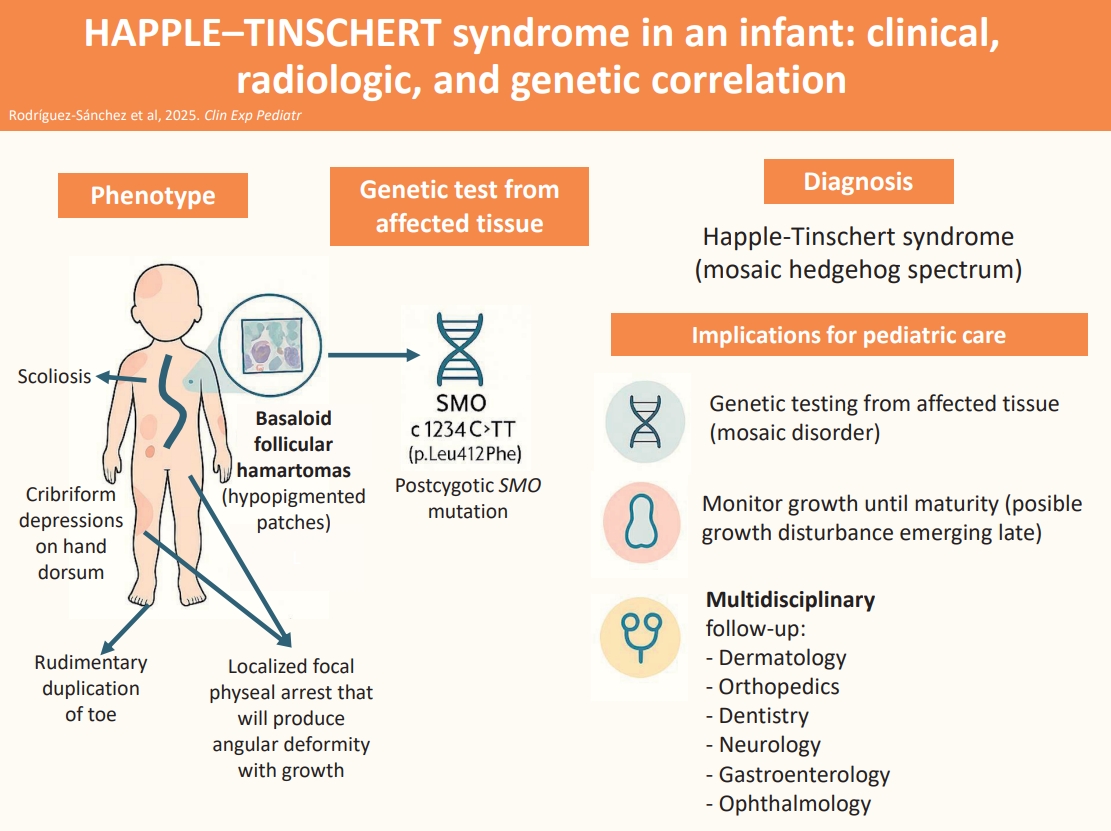
- Original Article
- General Pediatrics
- Global and regional burden of neonatal disorders (preterm birth, encephalopathy, jaundice, and sepsis), 1990–2021 and projections to 2050
- Yuseon Kang, Jeongseon Oh, Dongjin Yeo, Jaeyu Park, Sooji Lee, Na Yun Kim, Jungmin Park, Seung Ha Hwang, Tae Hyeong Kim, Dong Keon Yon
- Clin Exp Pediatr. 2026;69(2):171-181. Published online October 30, 2025
-
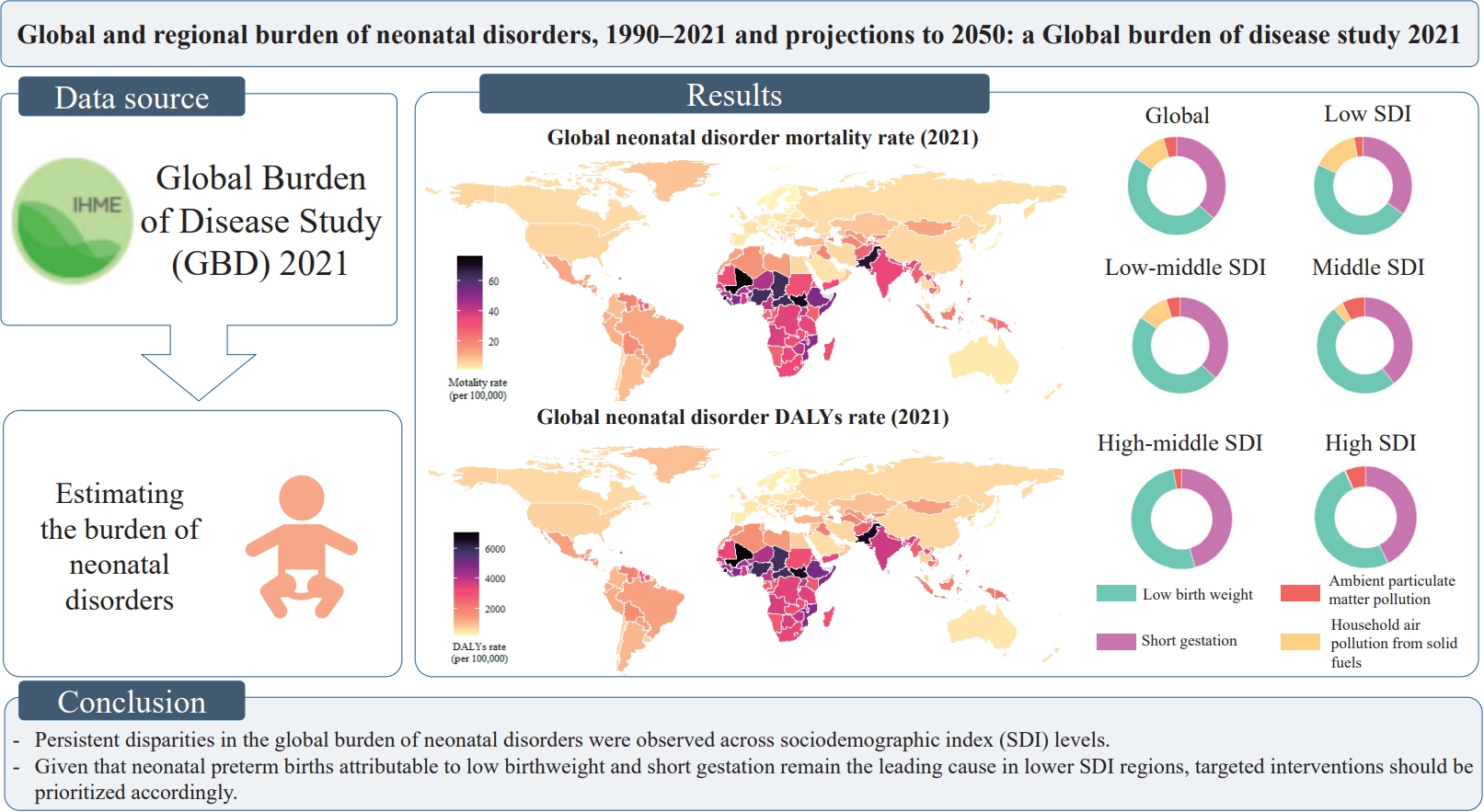
This study provides the first comprehensive estimated global burden of neonatal disorders attributable to risk factors in 1990–2021 stratified by sex, cause, sociodemographic index (SDI), and region. We identified persistent disparities across SDI levels, with low birthweight and short gestation contributing most to the age-standardized disability-adjusted life year rate of neonatal disorders. These findings highlight the urgent need for targeted context-specific interventions to reduce infant mortality and improve neonatal health equity.
- Associations of routine breakfast and napping habits with early adiposity rebound by age 3 years: a population-based cohort study in Japan
- Toshifumi Yodoshi
- Clin Exp Pediatr. 2026;69(2):163-170. Published online October 22, 2025
-
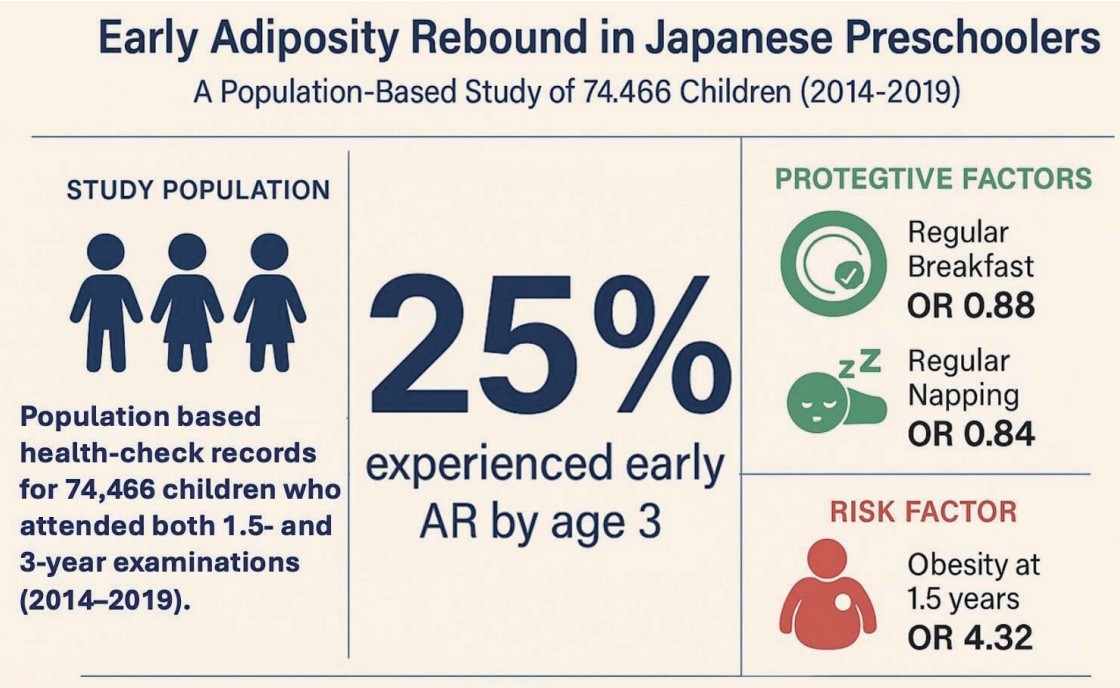
In a population‑based cohort of 74,466 children, 25% experienced early adiposity rebound (AR) by age 3. Daily breakfast and routine napping at 1.5 years were independently associated with lower odds of AR, while obesity at 1.5 years was a strong predictor. These modifiable routines could help delay AR and enable early identification during routine child health checks.
- Bifidobacterium animalis subsp. lactis BLa80 for preventing allergic, respiratory, and gastrointestinal diseases in young children in China: a randomized double-blind placebo-controlled trial
- Ke Chen, Xi Zhang, Kaihong Zeng, Jiayi Zhong, Shanshan Jin, Yang Nie, Ping Yang, Nianyang He, Haixia Chen, Yanmei Cao, Yunrong Fu, Ziji Fang, Wei Jiang, Changqi Lium
- Clin Exp Pediatr. 2026;69(2):150-162. Published online October 30, 2025
-
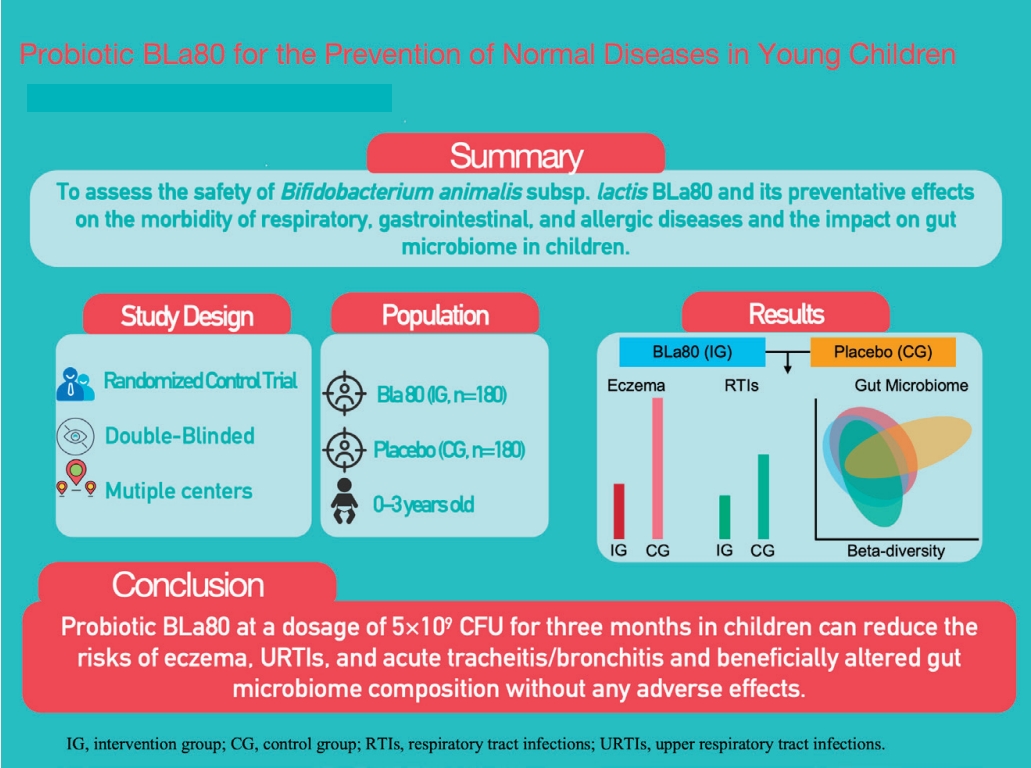
Question: Can probiotic BLa80 bring long-term benefits to the health of young children?
Finding: This trial demonstrated that the daily administration of s BLa80 at 5×109 colony-forming units for 3 months in children can reduce the risk of eczema, upper respiratory tract infections, and acute tracheitis/bronchitis as well as beneficially improve the gut microbiome without any adverse effect.
Meaning: Bla80 can bring definite health benefits to young children.
- Critical Care Medicine
- Telemedicine outcome of mechanically ventilated children in Brazilian pediatric intensive care units
- Aristóteles de Almeida Pires, Luciano Remião Guerra, João Ronaldo Mafalda Krauzer, Luciane Gomes da Cunha, Mariana Motta Dias da Silva, Vanessa Cristina Jacovas, Hilda Maria Rodrigues Moleda Constant, Taís de Campos Moreira, Paulo Márcio Pitrez, Felipe Cezar Cabral
- Clin Exp Pediatr. 2026;69(2):140-149. Published online October 23, 2025
-
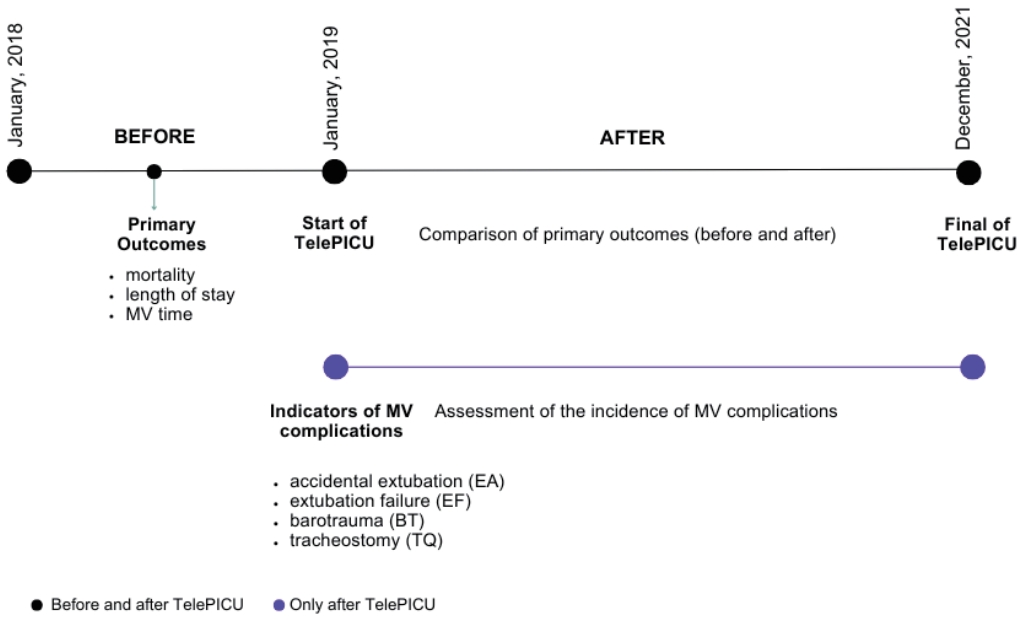
Question: Telemedicine interventions in Brazilian public pediatric intensive care units effectively address the challenges related to specialized care provision in resource-limited settings.
Finding: The implementation of telemedicine significantly reduced overall mortality rates among mechanically ventilated children (from 20.7% to 10.4%) and increased ventilator-free days from 3 (interquartile range, 0–7) to 4 (interquartile range, 2–8) days.
Meaning: These findings support telemedicine as a viable strategy for enhancing pediatric critical care in public health systems, particularly by improving patient outcomes.
- Nephrology (Genitourinary)
- Assessing kidney outcomes in childhood-onset lupus nephritis: role of National Institutes of Health-modified histological indices
- Nuanpan Penboon, Pornpimol Rianthavorn
- Clin Exp Pediatr. 2026;69(2):130-139. Published online October 23, 2025
-
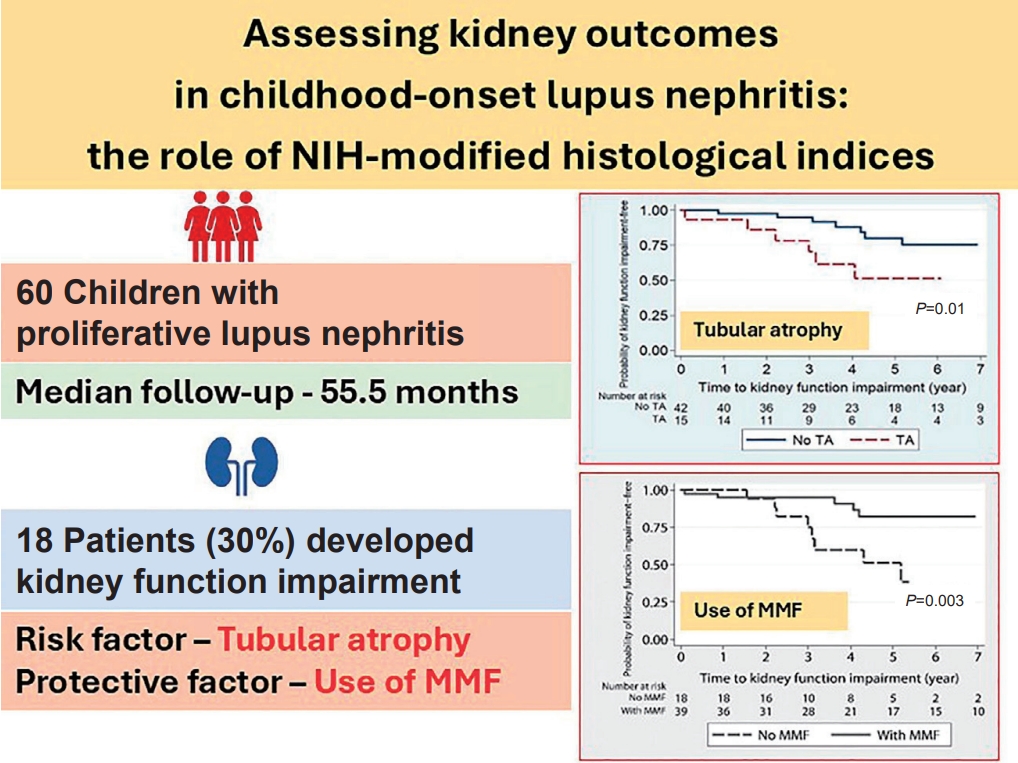
Question: In children with proliferative lupus nephritis, do National Institutes of Health-modified indices and treatment choices predict long-term kidney function?
Finding: Higher chronicity index scores, especially tubular atrophy and interstitial fibrosis, predicted kidney impairment. Additionally, the use of mycophenolate mofetil (MMF) for maintenance therapy was associated with a lower risk of kidney function decline.
Meaning: The early recognition of chronic lesions and MMF-based maintenance therapy may improve kidney outcomes in childhood-onset lupus nephritis.
- Gastroenterology
- Progression from acute to chronic pancreatitis in children: a systematic review and meta-analysis
- Endre Botond Gagyi, Mahmoud Obeidat, Edina Tari, Szilárd Váncsa, Dániel Sándor Veres, Peter Banovcin, Péter Jenő Hegyi, Péter Hegyi, Bálint Erőss
- Clin Exp Pediatr. 2026;69(2):117-129. Published online December 4, 2025
-
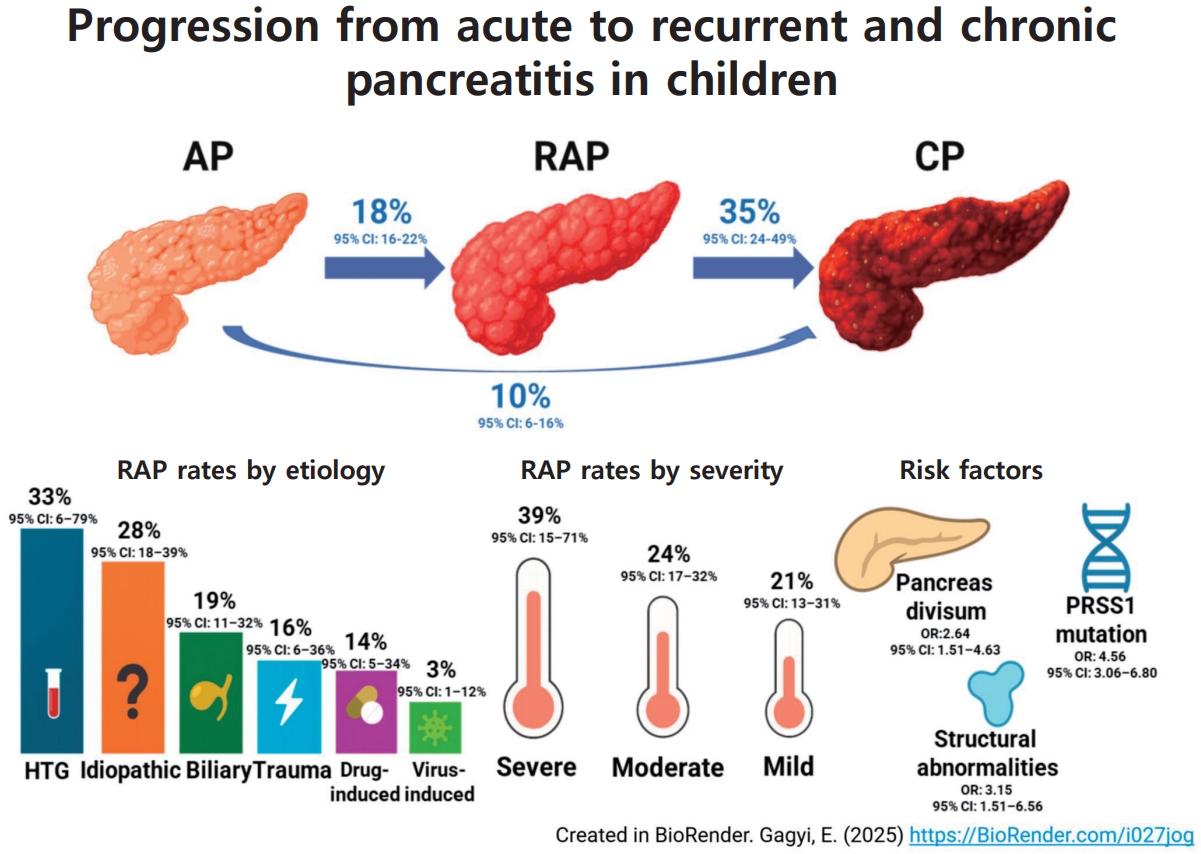
Approximately 1 in 5 children with acute pancreatitis develops recurrent attacks, and over one-third of such cases progress to chronic pancreatitis. Progression is closely linked to genetic mutations, particularly PRSS1, and anatomical abnormalities, whereas demographic and routine clinical factors lack predictive value. These results support early genetic and anatomical assessments, enabling targeted follow-ups and timely interventions in highrisk pediatric patients.
- Editorial
- Neurology
- Tocilizumab as a key therapeutic option in high-risk pediatric acute necrotizing encephalopathy
- Jon Soo Kim
- Clin Exp Pediatr. 2026;69(2):114-116. Published online January 26, 2026
-
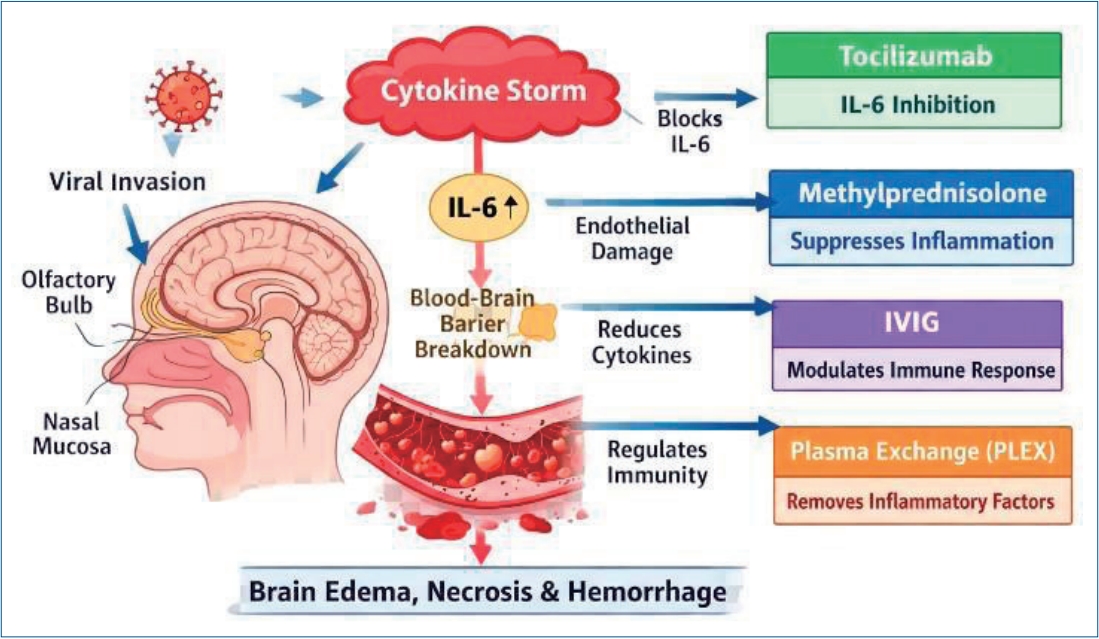
· Acute necrotizing encephalopathy (ANE) is a severe, infection- triggered encephalitis driven primarily by cytokine- mediated immune dysregulation rather than direct viral cytotoxicity.
· Tocilizumab, through targeted inhibition of interleukin-6 signaling, is an important therapeutic option for ANE that may improve survival and neurological outcomes of high-risk pediatric patients.
- Review Article
- Neurology
- Sacral dimple: clinical perspectives of lesions hidden beneath the skin
- Jin Eun, Kwan Sung Lee, Seung Ho Yang
- Clin Exp Pediatr. 2026;69(2):103-113. Published online November 26, 2025
-
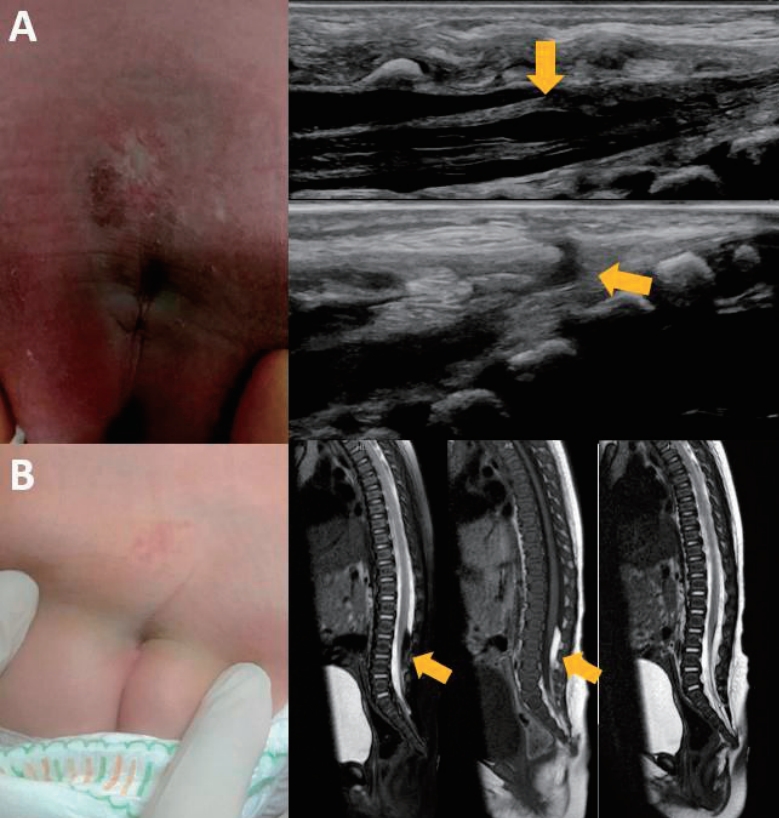
· Most sacral dimples are benign, but atypical features may indicate occult spinal dysraphism.
· Simple dimples meeting strict criteria require no imaging, whereas atypical dimples require targeted ultrasonography or magnetic resonance imaging.
· The early diagnosis and surgical management of highrisk cases prevents irreversible neurological, orthopedic, and urological deficits.
- General Pediatrics
- Systematic review of influence of ethnicity on efficacy and safety of pharmacotherapy for childhood and adolescent obesity
- Surendra Gupta, Purushottam Lal, Abhishek Gupta, Brajesh Raj Chaudhary
- Clin Exp Pediatr. 2026;69(2):84-102. Published online January 26, 2026
-
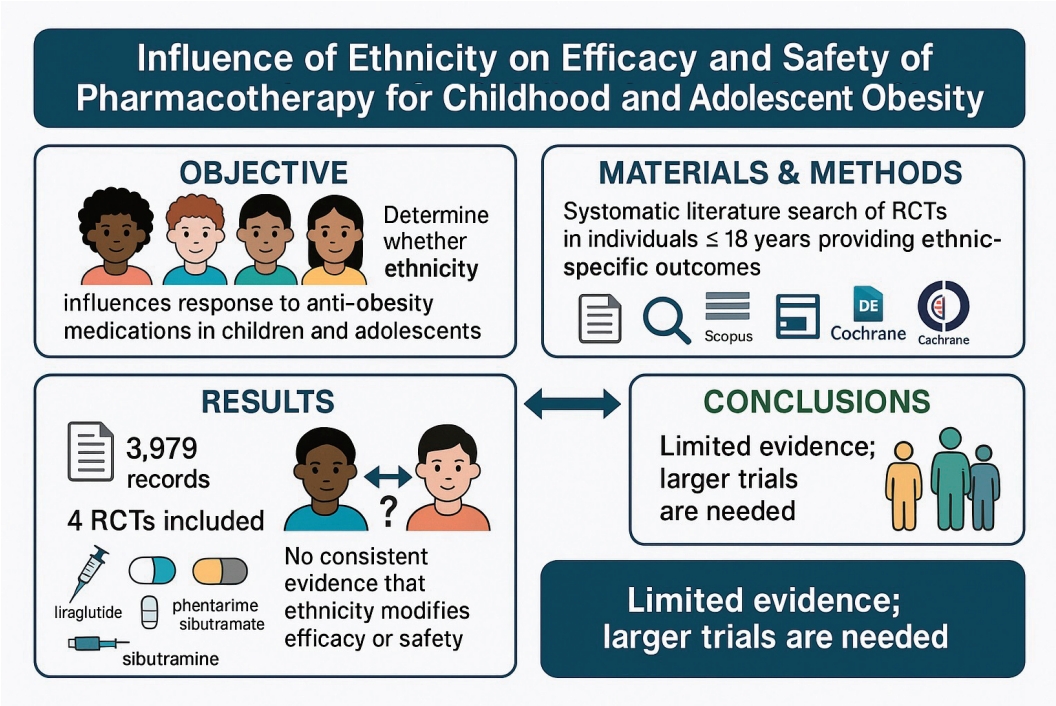
Ethnic variations may influence the response of children and adolescents to obesity pharmacotherapy. Current evidence does not show consistent differences in efficacy or safety among ethnic groups; however, available data are limited. Larger, ethnically diverse trials are needed to develop personalized obesity treatment strategies.
- Guideline
- Infection
- Recommendation for use of 15- and 20-valent pneumococcal conjugate vaccines in Korean infants and children
- Ki Wook Yun, Dong Hyun Kim, Jong Gyun Ahn, Byung-Wook Eun, Jin Lee, Jina Lee, Taek-Jin Lee, Hyunju Lee, Dae Sun Jo, Eun Young Cho, Hye-Kyung Cho, Soo-Han Choi, Young June Choe, Ui Yoon Choi, Yun-Kyung Kim; The Committee on Infectious Diseases of the Korean Pediatric Society
- Clin Exp Pediatr. 2026;69(1):76-83. Published online December 30, 2025
-
Compared to PCV13, PCV15 includes 2 (22F and 33F), and PCV20 includes 7 (8, 10A, 11A, 12F, 15B, 22F, and 33F) additional serotypes. The vaccination schedule remains the same: primary doses at 2, 4, and 6 months, and a booster at 12–15 months. If PCV13 was administered in the primary series, PCV15 and PCV20 may be used to complete it or as a booster.
- Clinical Note
- Neonatology (Perinatology)
- External tracheal compression and mucosal injury in a neonate with cervical teratoma: a rare airway challenge
- Rhodora Guillen, Arijit Lodha, Prashanth Murthy
- Clin Exp Pediatr. 2026;69(1):73-75. Published online December 4, 2025
-

- Original Article
- Other
- Comparing ethyl chloride and 10% lignocaine spray for pediatric intravenous cannulation pain relief
- Susmitha Vellanki, Malavika Kulkarni, H.D. Arun Kumar, Deepali Shetty, Nikhil Karthik B, Mathew Tom
- Clin Exp Pediatr. 2026;69(1):65-72. Published online November 21, 2025
-

Background: Intravenous cannulation (IVC) is a routine yet distressing procedure in pediatric patients, often provoking significant anxiety and procedural pain. Although eutectic mixtures such as eutectic mixture of local anesthetic cream are widely used, their delayed onset limits their applicability in time-sensitive settings. Ethyl chloride vapocoolant spray and 10% lignocaine spray have been proposed as rapid-onset alternatives, yet direct comparative...
- Critical Care Medicine
- High-dose methylprednisolone and tocilizumab improve survival of patients with high-risk pediatric acute necrotizing encephalopathy
- Chaonan Fan, Fei Li, Kechun Li, Zheng Li, Yiyang Mao, Lijuan Wang, Gang Liu, Yingchao Liu, Quan Wang, Suyun Qian
- Clin Exp Pediatr. 2026;69(1):56-64. Published online October 22, 2025
-

Question: Which immunomodulatory strategies can reduce mortality in children with acute necrotizing encephalopathy (ANE)?
Finding: High-dose methylprednisolone (30 mg/kg/day) significantly improved the survival of high-risk patients, particularly when combined with tocilizumab.
Meaning: These findings support the use of a severity-based immunotherapy approach to optimize the outcomes of pediatric ANE.
- Rheumatology
- Recurrent immunoglobulin A vasculitis in children and adolescents: prevalence and associated risk factors
- Nootsara Atchariyaphuk, Maynart Sukharomana, Thanaporn Chaiyapak, Sirirat Charuvanij
- Clin Exp Pediatr. 2026;69(1):46-55. Published online October 22, 2025
-

Question: What can predict immunoglobulin A vasculitis (IgAV) recurrence, and when does it occur? How do childhood- and adolescent-onset IgAV compare?
Finding: The IgAV recurrence rate was 35.6%. It usually occurred within 12 months and was associated with corticosteroids treatment.
Meaning: Childhood-onset IgAV more commonly featured gastrointestinal and musculoskeletal manifestations and required hospitalization. Adolescent-onset IgAV more commonly featured renal involvement. Vigilant monitoring for recurrence is necessary, particularly with corticosteroids treatment.
- Allergy
- Maternal sleep disorders during pregnancy and subsequent risk of allergic diseases in Japanese children: the TMM BirThree Cohort Study
- Ami Uematsu, Masatsugu Orui, Mami Ishikuro, Keiko Murakami, Aoi Noda, Genki Shinoda, Taku Obara, Shinichi Kuriyama
- Clin Exp Pediatr. 2026;69(1):36-45. Published online October 22, 2025
-

Question: Associations have been made between maternal sleep disorders during pregnancy and allergic diseases including bronchial asthma, atopic dermatitis, food allergy, and allergic conjunctivitis/rhinitis/hay fever in their children.
Finding: In the crude model, sleep disorders during pregnancy were associated with all examined allergic diseases in children. After adjustment, significant associations remained for atopic dermatitis and allergic conjunctivitis/rhinitis/hay fever.
Meaning: The study highlights associations between maternal sleep and child allergic diseases.
- Gastroenterology
- Gut microbiota and metabolomic alterations in newborns of mothers with gestational diabetes mellitus
- Wan-Hsin Su, Yi-Wei Wang, Chien-Chang Chen, Ming-Wei Lai, Hsun-Chin Chao, Ming-Chou Chiang, Ren-Huei Fu, Pai-Jui Yeh
- Clin Exp Pediatr. 2026;69(1):26-35. Published online October 22, 2025
-

Question: Does maternal gestational diabetes mellitus (GDM) affect newborn gut microbiota and metabolomic profiles?
Finding: Neonates born to mothers with diet-controlled GDM exhibited reduced gut microbiota α-diversity, altered β-diversity, and metabolic shifts, including changes in fumarate and succinate levels, with peroxisome proliferator-activated receptor and adipocytokine signaling pathway activation.
Meaning: Maternal GDM affects early microbial colonization and metabolism in newborns and may have long-term health implications.
- Editorial
- Allergy
- Prioritizing maternal sleep: a public health strategy for preventing childhood allergic diseases
- Eunchae Lee, Seohyun Hong, Dong Keon Yon
- Clin Exp Pediatr. 2026;69(1):22-25. Published online December 18, 2025
-

Sleep disorders affect more than half of pregnancies worldwide and can harm maternal health and offspring outcomes. Prioritizing maternal sleep as a public health strategy may help prevent prenatal and pediatric allergic diseases and reduce their burden. Other maternal health strategies may also reduce the burden of offspring allergic diseases, while adequate maternal sleep is associated with other offspring outcomes, underscoring its importance as a key public health strategy.
- Review Article
- Gastroenterology
- Ingestion of foreign bodies and caustic substances in children: a narrative review on clinical evaluation and management update
- Maria Rogalidou
- Clin Exp Pediatr. 2026;69(1):11-21. Published online December 10, 2025
-

Foreign body and caustic substance ingestion in children aged 1–5 years can feature to severe and, sometimes life-threatening complications. High-risk items include batteries, magnets, and corrosive chemicals. Severity depends on object type, location, and ingestion timing. Prompt diagnosis and early endoscopic intervention are crucial. Individualized management, high clinical suspicion, and parental education are essential to improving outcomes and preventing immediate and long-term complications affecting a child’s quality of life.
- Endocrinology
- Pubertal induction in prepubertal males with hypogonadotropic hypogonadism: testosterone or gonadotropins?
- Paolo Cavarzere, Riccardo Battiston, Valentina Lupieri, Valentina Mancioppi, Claudio Maffeis
- Clin Exp Pediatr. 2026;69(1):1-10. Published online December 18, 2025
-

The pubertal induction process in males still poses a challenge for pediatric endocrinologists. The existing literature is limited, and it is not yet possible to make definitive recommendations. We described the various treatment for this condition and tried to analyze the unresolved questions to address the question posed in the title of our manuscript.
- Clinical Note
- Gastroenterology
- Successful rescue after catastrophic bleeding of carotid artery pseudoaneurysm following button battery ingestion in a toddler
- Manjit Kaur, Ujjal Poddar, Basant Kumar, Abdul Muzil Munshi, Rajanikant R. Yadav, Moinak Sen Sarma, Anshu Srivastava
- Clin Exp Pediatr. 2025;68(12):1041-1044. Published online October 22, 2025
-
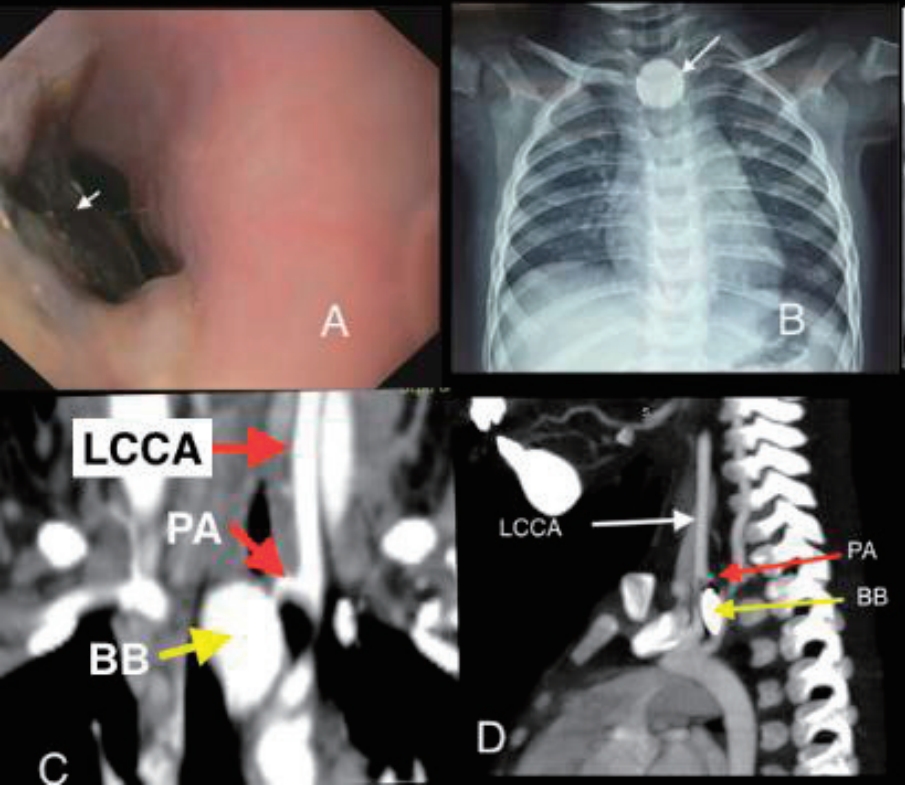
Button battery (BB) ingestion is an increasing hazard. Catastrophic gastrointestinal bleeding due to pseudoaneurysm rupture following BB impaction is often fatal. Here we report the case of an unwitnessed BB ingestion in an 18-month-old boy who presented with repeated massive UGIB due to a left CCA pseudoaneurysm that was successfully managed multidisciplinarily. BB ingestion should be considered in toddlers presenting with hematemesis.
- Original Article
- General Pediatrics
- Lipoprotein(a) prevalence trends in Portuguese children and adolescents: a real-world perspective
- Isabel Morais Ribeiro, Susete Vieira, Miguel Saraiva, Mónica Tavares, José Carlos Oliveira, Isabel Mangas Palma, Helena Ferreira Mansilha
- Clin Exp Pediatr. 2025;68(12):1031-1040. Published online November 24, 2025
-

Early lipid screening, including lipoprotein(a) (Lp(a)), in children/adolescents is key to identifying and managing dyslipidemia and reducing the risk of early-onset cardiovascular disease. This study shows that prevalence of elevated Lp(a) in high-risk Portuguese children is alarming, with over 30% at intermediate/high risk and nearly 1% at very high-risk (>430 nmol/L). Since Lp(a) is mostly genetically determined, one-time early screening in atrisk children is crucial for timely monitoring and prevention.
- Pulmonology
- Ciclesonide shows a lung-protective effect in neonatal hyperoxia-exposed rats
- Victoria Mielgo, Miguel A. Gomez-Solaetxe, Lara Olazar, Begoña Loureiro, Carmen Rey-Santano
- Clin Exp Pediatr. 2025;68(12):1023-1030. Published online October 2, 2025
-
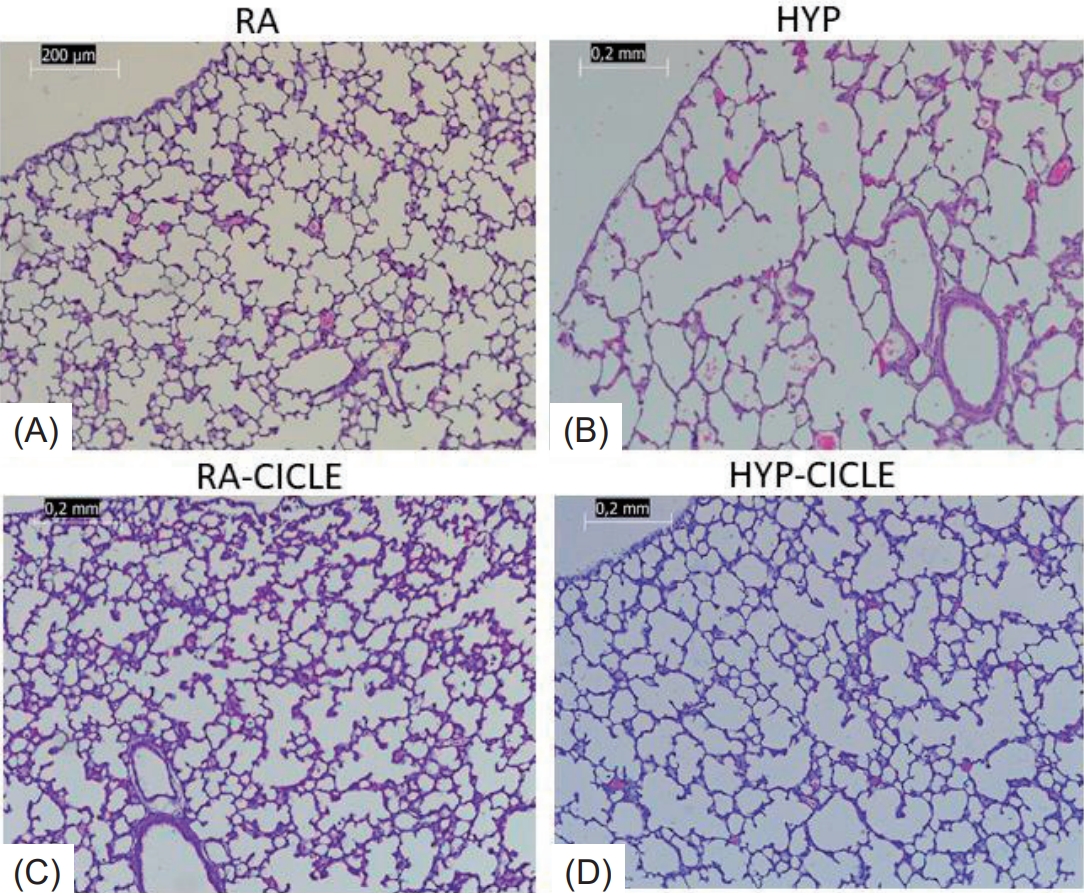
Question: Bronchopulmonary dysplasia (BPD) is the most prevalent chronic lung disease of prematurity. Numerous nonpharmacological/pharmacological interventions have been investigated without clear consensus. Can ciclesonide, a new synthetic glucocorticoid, effectively treat BPD?
Finding: Ciclesonide mitigated hyperoxia-induced lung injury and right ventricular hypertrophy in newborn rats.
Meaning: These findings suggest that postnatal ciclesonide may be an alternative to existing corticosteroids for the treatment of BPD.
- Critical Care Medicine
- Cytokine profile of Post–cardiopulmonary bypass in children
- Kantara Saelim, Kanokpan Ruangnapa, Jirayut Jarutach, Pongsanae Duangpakdee, Smonrapat Surasombatpattana, Pharsai prasertsan
- Clin Exp Pediatr. 2025;68(12):1015-1022. Published online September 19, 2025
-

Question: Can cytokine levels predict low cardiac output syndrome (LCOS) in children post–cardiopulmonary bypass?
Finding: Elevated interleukin (IL)-6, IL-8, and tumor necrosis factor-α levels were associated with LCOS, with an increase in IL-8 of >56 pg/mL from baseline to immediately postoperative being the strongest predictor.
Meaning: Monitoring immediately postoperative IL-8 levels may help identify pediatric patients at risk of LCOS, enabling timely interventions to improve outcomes.
- Infection
- Clinical outcomes and healthcare utilization of hospitalized children with influenza versus COVID-19
- David Chun-Ern Ng, Chuin-Hen Liew, Kah Kee Tan, Joanne Pereira, Muhammad Ihsan Roslan, Xiang Lin Cheng, Hui Yi Lim, Farah Nuruliayana A. Nazri, Asuwani Maran, Wan Fei Wong, Yasothai Chandran, Syaniza Shaharudin, Pon Ling Lau, Naveen Nair Gangadaran, Marlindawati Mohd Ali
- Clin Exp Pediatr. 2025;68(12):1007-1014. Published online October 2, 2025
-
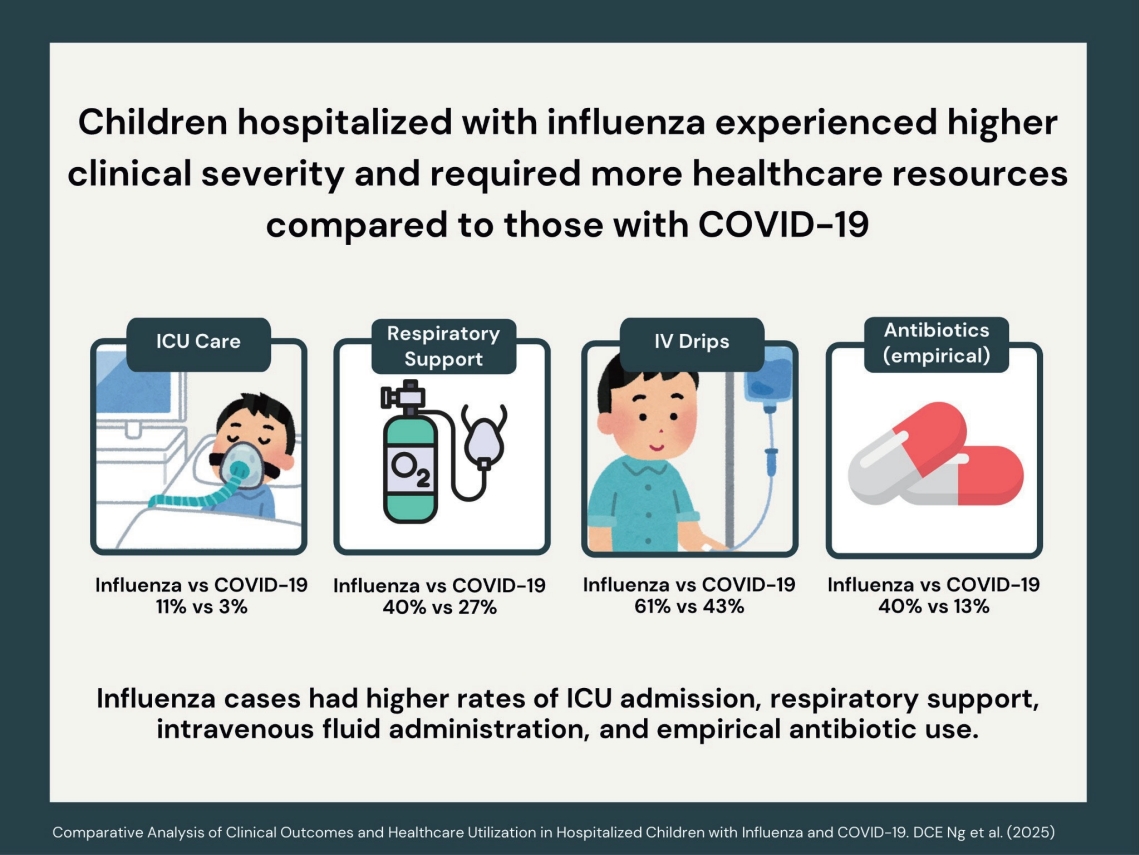
Question: How do clinical presentations, healthcare resource utilization, and outcomes differ between children hospitalized with influenza versus coronavirus disease 2019 (COVID-19)?
Finding: Patients with influenza were older, were more symptomatic, and required greater healthcare resources, including intravenous fluids, empirical antibiotics, respiratory support, and pediatric intensive care unit admission.
Meaning: Influenza involves greater severity and a higher healthcare burden than COVID-19, highlighting the need for preventive strategies such as vaccination and hospital resource planning during seasonal outbreaks.
- Association between vitamin D polymorphisms and binding protein and COVID-19 risk and severity in children
- Victoria Giatraki, Helen Dimitriou, Georgia Martimianaki, Christos Tsatsanis, Emmanouil Galanakis, Chrysoula Perdikogianni
- Clin Exp Pediatr. 2025;68(12):998-1006. Published online October 22, 2025
-
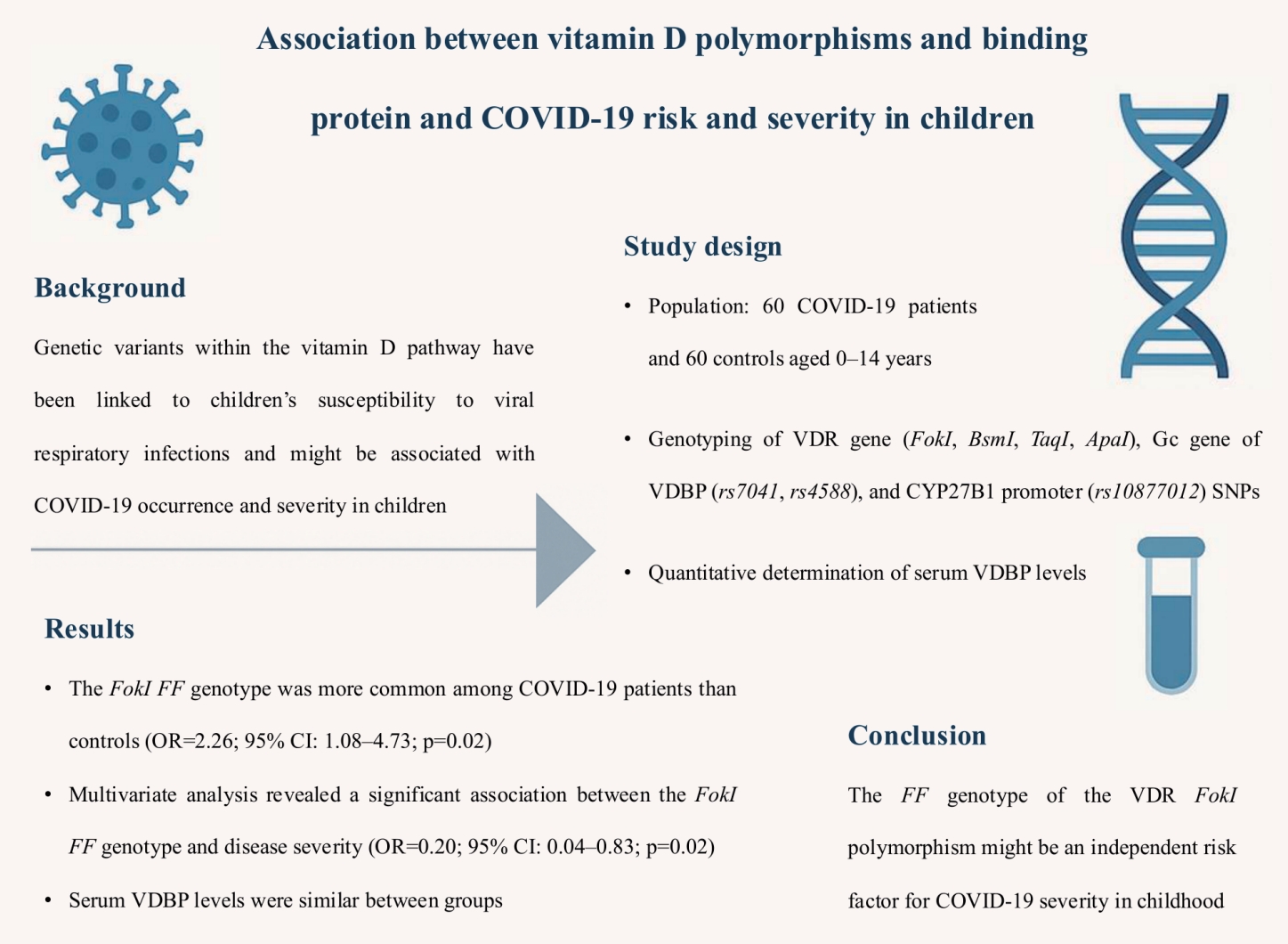
Question: Addressing crucial genetic variants within the vitamin D pathway and coronavirus disease 2019 (COVID-19) susceptibility, the vitamin D receptor, vitamin D binding protein, and CYP27B1-1260 polmorphisms might be associated with COVID-19 occurrence and severity in children.
Finding: The FokI FF genotype might be an independent risk factor for COVID-19 severity in childhood.
Meaning: This research may further elucidate genetic susceptibility to multisystem viral infections and establish genetic markers for severe clinical outcomes.
- Neonatology (Perinatology)
- Less invasive surfactant administration versus intubation-surfactant-extubation: a single-center retrospective study
- C.S. Jithin, A. Nalina, A. Shashidhar, P.N. Suman Rao
- Clin Exp Pediatr. 2025;68(12):991-997. Published online October 2, 2025
-
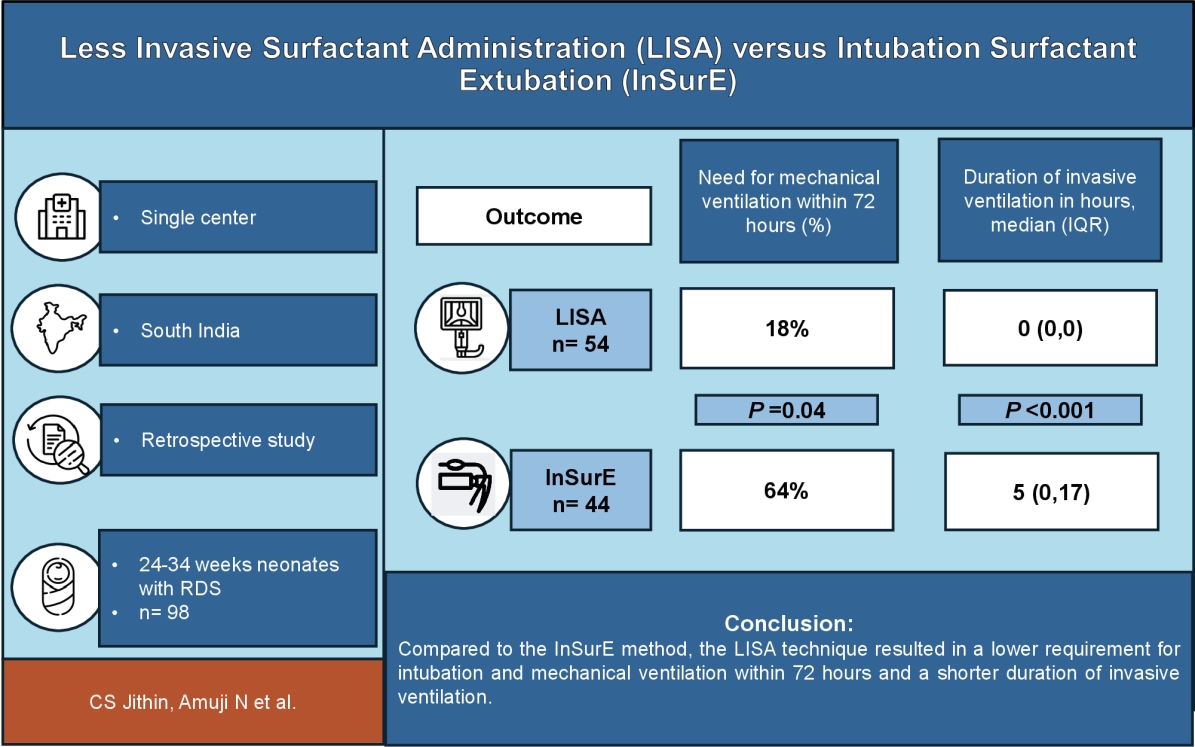
Question: Does less invasive surfactant administration (LISA) (vs. intubation-surfactant-extubation) improve clinical outcomes in preterm infants with respiratory distress syndrome?
Finding: LISA significantly reduced intubation and invasive mechanical ventilation needs within the first 72 hours and shortened the overall invasive respiratory support duration without increasing other morbidities.
Meaning: LISA is a less invasive and safer surfactant delivery alternative. Larger multicenter trials are needed to confirm its long-term safety and efficacy, especially in low- and middle-income countries.
- Hematology
- Assessment of natural killer cell subpopulations in pediatric patients with transfusion-dependent β-thalassemia major
- Fathia Ibrahim Elbassal, Mohamed Abdel Rehim Soliman, Nourhan Hossam Eldin Mohamed, Mai El-Sayad Abd El-Hamid, Hanan Hassan El-Sheity
- Clin Exp Pediatr. 2025;68(12):981-990. Published online September 12, 2025
-
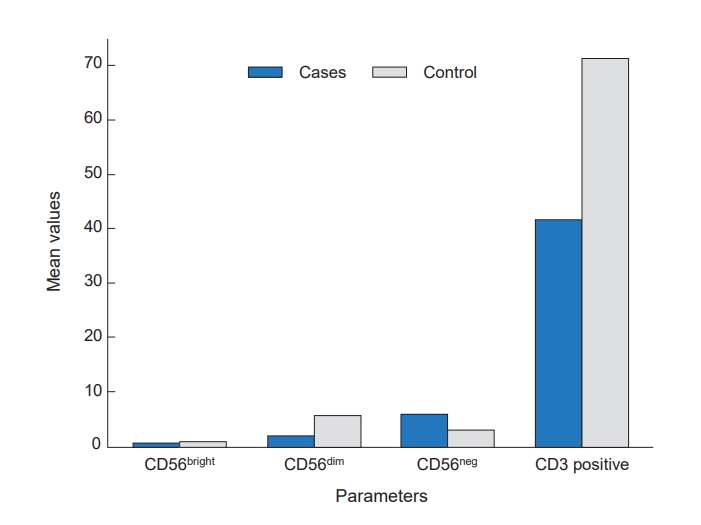
Question: How does iron overload affect immunity in pediatric patients with transfusion-dependent β-thalassemia major?
Finding: Iron overload in these patients is associated with disrupted natural killer (NK) cell subpopulations, reflecting impaired innate immunity.
Meaning: This highlights the need to monitor immune profile alongside iron status during thalassemia management.
- Oncology
- HLA‒B*58:01 and skin reactions in pediatric hematology and oncology patients treated with allopurinol
- Parisa Maneechai, Cholada Ratanatharathron, Jassada Buaboonam, Kleebsabai Sanpakit
- Clin Exp Pediatr. 2025;68(12):974-980. Published online October 2, 2025
-
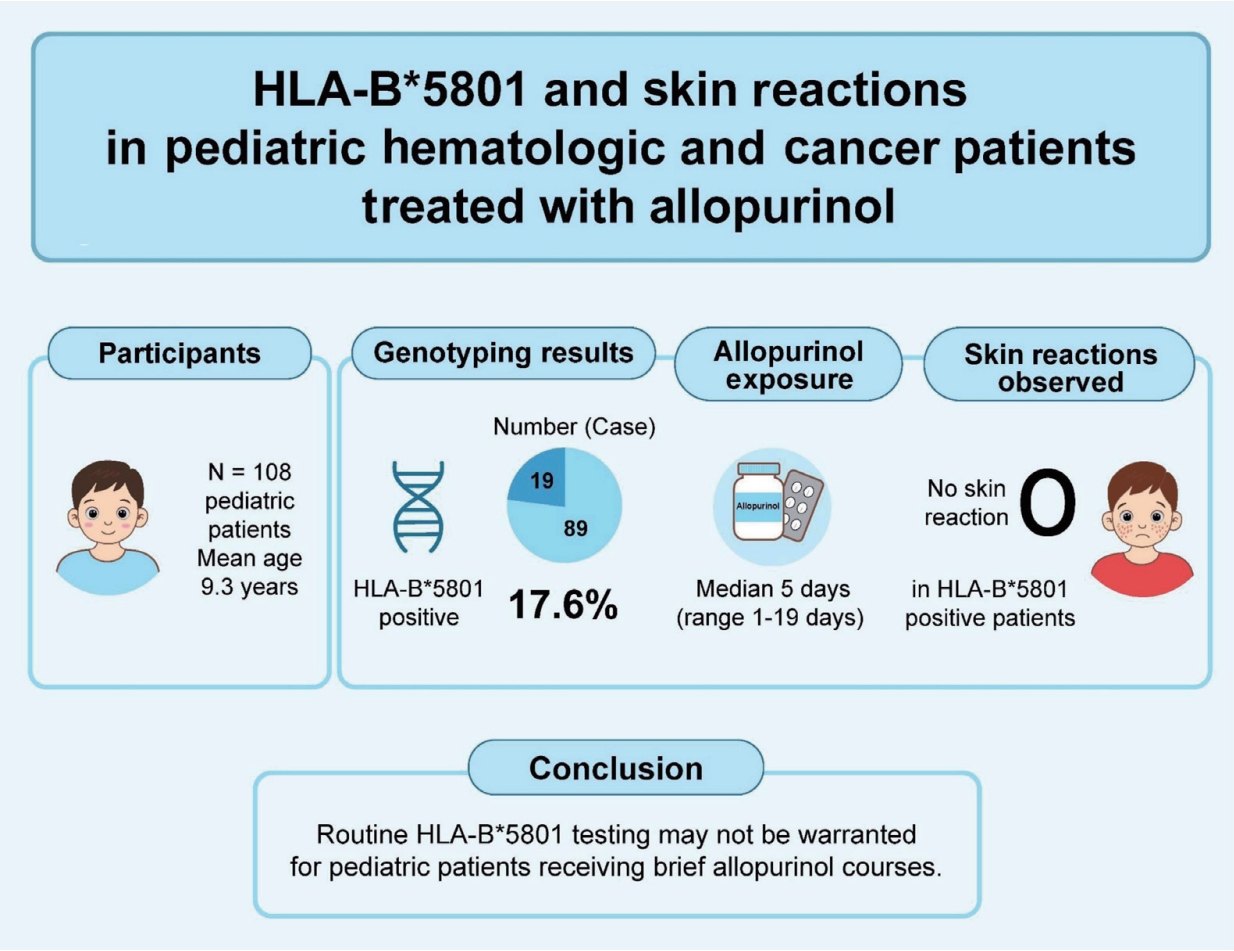
Question: Does human leukocyte antigen (HLA)–B*58:01 increase the risk of cutaneous reactions in pediatric patients with hematological and oncological diseases receiving allopurinol?
Finding: : Of 108 patients, 17.6% carried HLA–B*58:01 but none developed skin reactions. The only rash occurred in an HLA-B*58:01–negative patient.
Meaning: Short-duration allopurinol may mitigate severe cutaneous adverse reaction risk regardless of genotype. Routine HLA-B*58:01 screening may be unnecessary in pediatric patients with hematological and oncological diseases briefly receiving allopurinol.
- Editorial
- Infection
- Beyond COVID-19: meeting the challenge of evolving pediatric invasive group A streptococcal disease
- Han Wool Kim
- Clin Exp Pediatr. 2025;68(12):971-973. Published online November 26, 2025
-
Pediatric for invasive group A Streptococcus has resurged globally with increasing severity and toxin-mediated presentations. Beta-lactams remain the first-line treatment, but linezolid has emerged as a safe alternative in cases refractory to β-lactams. Early intravenous immunoglobulin use may improve outcomes in severe streptococcal toxic shock syndrome cases, while C-reactive protein and procalcitonin aid early risk stratification. Integrating global surveillance and individualized therapy is crucial in the postpandemic era.
-

-
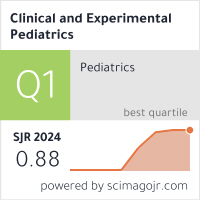
-
6.02024CiteScore98th percentilePowered by
-
Impact Factor3.6
-
- TOPICS
- ARTICLE CATEGORY
- Editorial Office
-
Korean Pediatric Society
#1606 Seocho World Officetel, 19 Seoun-ro, Seocho-ku, Seoul 06732, Korea
Tel: +82-2-3473-7306 Fax: +82-2-3473-7307 E-mail: office@e-cep.org
Clinical and Experimental Pediatrics is an open access journal. All articles are distributed under the terms of the Creative Commons Attribution NonCommercial License (http://creativecommons.org/licenses/by-nc/4.0/)
Copyright © 2026 by Korean Pediatric Society.











